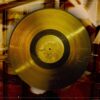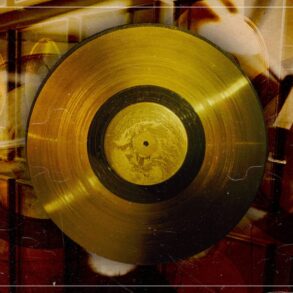
In the heart of Washington, D.C., where power brokers shape national policy, Seth Hurwitz has quietly built a different kind of influence—one measured not in legislative victories but in unforgettable nights of live music. As the founder of I.M.P. and co-owner of the iconic 9:30 Club, Hurwitz has become an unlikely music mogul, all while maintaining a steadfast commitment to independence in an increasingly corporatized industry.
“It was never about a career,” Seth Hurwitz reflects on his journey. “People ask me all the time, ‘How did you envision all this? How did you plan?’ We really didn’t plan anything. It’s all about just putting on a show.”
This philosophy—treating each concert as a unique experience rather than a calculated career strategy—has defined Hurwitz’s approach to the music business for over four decades. In an era where conglomerates like Live Nation control vast segments of the industry, Hurwitz stands as a testament to the enduring power of independence, authenticity, and putting music before profit.
The accidental empire builder
Hurwitz’s path wasn’t predetermined by corporate ambition or expansion strategies. As a music-loving teenager who barely graduated high school, he was driven by something more fundamental: a deep passion for sharing music with others. From playing singles for his elementary school classmates to experimenting with homemade radio setups, Hurwitz’s earliest ventures hinted at what would become his life’s work.
His first attempt to produce a concert in junior high was rebuffed due to his age, but he persevered, organizing his first show while still in high school. By the time he graduated, Hurwitz had already launched I.M.P., his independent concert promotion company, working initially from his bedroom.
When the opportunity to purchase the struggling but culturally significant 9:30 Club arose in the mid-1980s, Hurwitz wasn’t initially enthusiastic. “I wasn’t interested in owning a club—it felt like the difference between going to the gym and owning the gym, and I really didn’t want that responsibility,” he recalls. But when faced with the prospect of a competitor acquiring the venue, Hurwitz made his move, beginning what would become a transformative journey for D.C.’s music scene.
Building success on principles, not profit
While many in the industry chase expansion and market domination, Hurwitz has deliberately limited his empire’s geographic scope. “I’m not national, and I’ve never had a desire to be national,” he states firmly. “I like to quote Marcus Aurelius: ‘If you seek tranquility, do less.’ So why do I need other markets? I don’t. I’m doing fine here.”
This philosophy of intentional limitation runs counter to conventional business wisdom, but it has allowed Hurwitz to focus on what matters most to him: creating exceptional music experiences in his hometown. Rather than diluting his vision across multiple markets, he has concentrated on making his venues—the 9:30 Club, The Anthem, and more recently, The Atlantis—the best they can possibly be.
His approach to ticket pricing further demonstrates his principles-first mentality. In an era of dynamic pricing and soaring ticket costs, Hurwitz remains a vocal critic of practices that make concerts less accessible. “I think we should set a price and it should stay that way, and a ticket should not become a commodity that people trade,” he asserts, challenging the industry’s shift toward treating concert tickets as financial assets.
Hurwitz has been particularly outspoken about the resale market, which he sees as a fundamental threat to the sustainability of live music. “The scourge of the industry and the reason that the ticket price thing has spiraled… The more people pay for tickets, the less shows they’re going to go to,” he explains. His solution? A simple cap on resale prices—something he’s advocated for consistently, even testifying before Congress against the Live Nation/Ticketmaster merger in 2009, foreseeing the harmful effects of consolidation on ticket prices and consumer choice.
The ‘at-bat’ mentality
Central to Hurwitz’s success is what might be called his “at-bat” mentality—approaching each show as a unique opportunity rather than just another entry in a portfolio. Like a baseball player who treats each time at the plate as a fresh chance to make an impact, Hurwitz focuses intently on making each individual concert memorable.
This non-strategic, passion-driven approach has paradoxically contributed to his long-term success. While corporate promoters might view shows primarily through the lens of profit margins and market share, Hurwitz operates on the principle that if you focus on quality and accessibility, financial success will follow naturally.
His venues reflect this philosophy. The Anthem, which Hurwitz considers a prototype for the future of mid-sized venues, was designed specifically to create optimal experiences for artists and fans alike. With a capacity flexible enough to accommodate crowds from 1,500 to 6,000, it addresses a critical gap in the venue landscape, offering an alternative to half-filled arenas where, as Hurwitz notes, “many acts go to the arena, it stops cold at 10,000 because beyond that, it’s upper deck.”
More recently, The Atlantis represents Hurwitz’s commitment to preserving the intimate connection between artists and audiences that defined the original 9:30 Club. This 450-capacity venue, built as a near-replica of the original club’s space, stands as a deliberate counterpoint to the industry’s fixation on larger venues and higher profit margins.
The reluctant revolutionary
Perhaps what makes Hurwitz’s story so compelling is his reluctance to frame himself as an industry rebel. Despite his principled stands against corporate consolidation and exploitative pricing practices, he remains grounded in the day-to-day work of putting on great shows.
“I don’t want to tell anyone else how they should live or think,” he says, acknowledging the personal nature of his approach. “This has just worked for me. I don’t know that it’ll work for anyone else.”
This humility, coupled with his uncompromising commitment to doing what he believes is right, has earned Hurwitz the respect of artists, fans, and even competitors. In an industry increasingly defined by corporate mergers and profit maximization, his independent stance serves as a powerful reminder that there are alternative paths to success.
Hurwitz credits much of his achievement to those who took chances on him throughout his career. From the DJ who helped him break into radio to the developer who believed in his vision for The Anthem, these relationships have been fundamental to his journey. “There have been a few people like that where, I don’t know, I’m not a religious person, but they seemed to be sent from somewhere,” he reflects. “They went out of their way and took a bet on me.”
A legacy of independence
As Seth Hurwitz continues to navigate the complex landscape of today’s music industry, his legacy of independence stands as inspiration for those who value authenticity over conformity, creativity over convention. In a business increasingly dominated by corporate entities with shareholder obligations, Hurwitz represents something increasingly rare: a successful entrepreneur whose primary commitment remains to the music itself.
“My favorite thing in the whole world,” he says, “is standing at that line where my box is at The Anthem, which is right on the stage line. Having said hi to the band and watched people come in and on both sides of the stage, everyone is happy and there’s this joy there… That’s the best moment ever.”
For the reluctant mogul who built an empire by focusing on one show at a time, that moment of pure connection between artists and audiences remains the truest measure of success—one that no balance sheet or market share report could ever capture.
DISCLAIMER – “Views Expressed Disclaimer: Views and opinions expressed are those of the authors and do not reflect the official position of any other author, agency, organization, employer or company, including NEO CYMED PUBLISHING LIMITED, which is the publishing company performing under the name Cyprus-Mail…more
This post was originally published on this site be sure to check out more of their content








